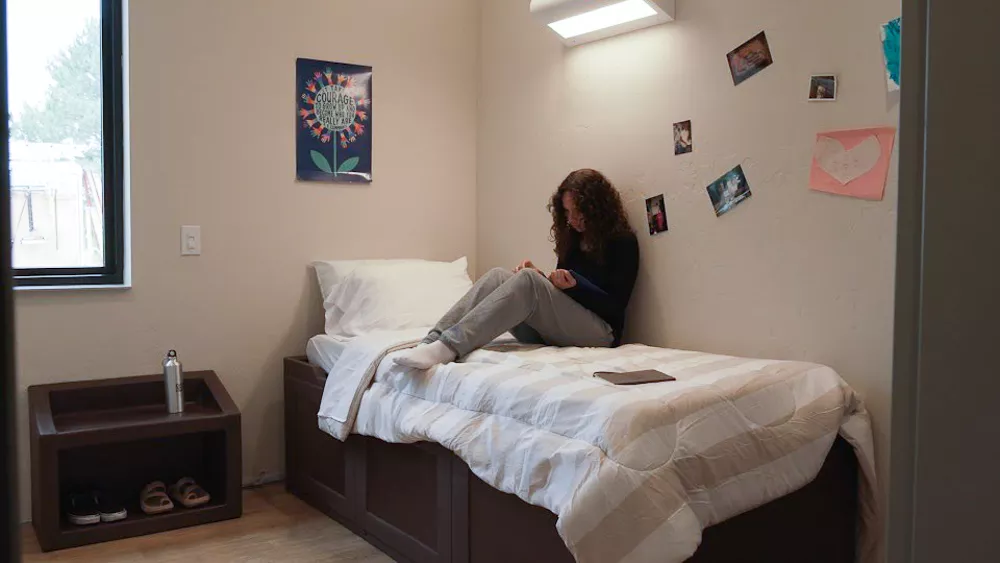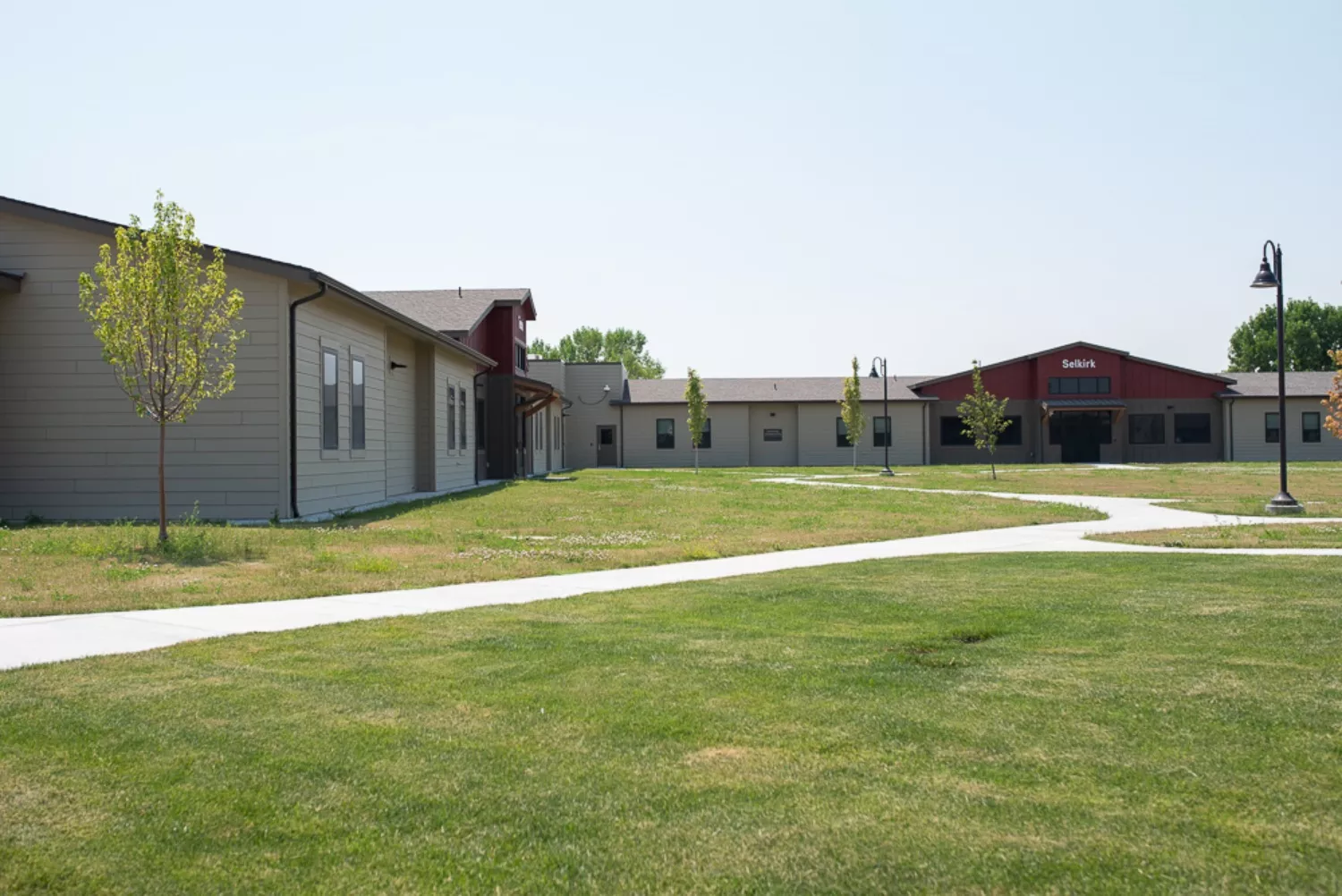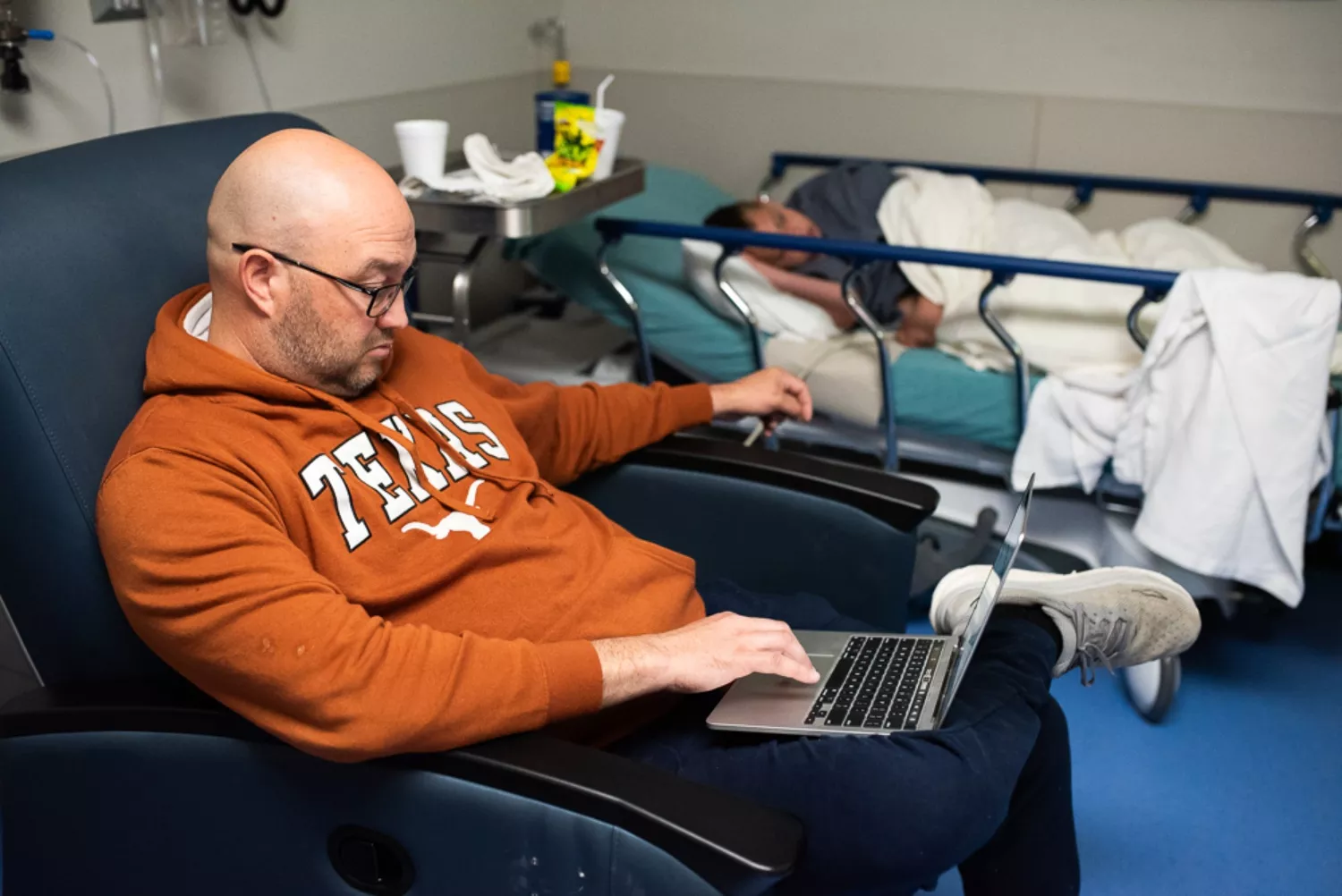Idaho ramped up investments in round-the-clock youth psychiatric care. But concerns over safety, accessibility loom
Parents of children who were turned away from Idaho Youth Ranch criticize its ‘unrealistic’ admissions standards

When Brittony Young’s 10-year-old son became too aggressive to live at home, doctors said he needed around-the-clock psychiatric care.
For four months Young pleaded for help, and the state of Idaho eventually agreed to pay for her son’s treatment. But that specialized care didn’t exist in Idaho. After a year of searching for somewhere that would take him, Young had to send her son to a facility in Oregon — 12 hours from home. Since he left in January, Young has only been able to visit her son once.
Stories like these are why Idaho lawmakers made a $15 million investment in 2022 to support the opening of three psychiatric residential treatment facilities across the state. Each year, about 100 Idaho kids are sent across the country to receive treatment for complex mental health conditions that Idaho has been unable to provide, according to state data.
But two years later, barriers still exist for parents seeking in-state help.The Residential Center for Healing and Resilience at the Idaho Youth Ranch — the largest of the new facilities and the only one open while two others remain under construction — is rejecting kids with the most severe symptoms. And as the state faces scrutiny over its oversight of other youth treatment homes, child health care advocates say they’re concerned about the safety of the kids who are admitted into one of Idaho’s new psychiatric facilities.
Parents are questioning why the state funneled millions into a facility that is denying kids who are at risk of harming themselves or others without that intensive care. Advocates are calling for stronger rules for facilities and increased oversight.
“The rules are not adequate enough to provide protections for these kids and ensure that we have enough eyes on interactions with these kids from outside of the facility,” said Courtney Holthus, an attorney at Disability Rights Idaho. “We do have some bare minimum requirements in place to protect children, but if they’re not being enforced, if those protections aren’t enforced by the state, then they’re meaningless.”
Psychiatric residential treatment facilities provide the highest level of treatment for children with complex mental and behavioral health conditions. Compared to other residential programs, they have lower staff-to-patient ratios, more therapy, stricter rules for use of restraints or seclusion, and are typically overseen by a psychiatrist.
Despite doctors recommending that higher level of care for more than 350 Idaho kids every year, Idaho Youth Ranch’s new facility remains mostly vacant.

Idaho Youth Ranch spokesman Jeff Myers said the program was designed to help the highest number of children possible. That means turning away kids with the most acute symptoms that demand more one-on-one care, have conditions that the facility isn’t equipped to handle, or pose a safety risk to staff or other residents, he said.
“It doesn’t do anyone any good if we accept a child that we’re not equipped to handle,” Myers said.
‘Who are they helping?’
Seven new buildings including a gym, school and residence halls dot the 258-acre Caldwell campus an hour northwest of Boise. Vibrant walls covered in murals and residents’ artwork are meant to feel more like a home than a treatment center where only eight children reside.
A tall, vertical metal fence surrounds the property, which is home to a new type of treatment for the 70-year-old organization.The cafeteria has a small kitchen where patients learn to make their own meals and outdoor seating overlooking the basketball and pickleball courts. Doors to the few occupied bedrooms are covered with stickers, photos and drawings personalized to the child who lives inside.
Staff said they are ready to care for up to 32 kids ages 11 to 17.
Parents who have waited months or, in some cases, more than a year to get their child into treatment, criticized the center for having unrealistic admissions standards.
Heather Brown lives about 30 minutes from the new Idaho Youth Ranch facility and filed an application on July 12 for her 16-year-old son, who, like most children in need of this care, has several behavioral health conditions that make it difficult for him to manage and cope with emotions often resulting in harm to himself or others. Hours later, the denial letter came. His IQ was too low, and his risk of hurting someone else was too great.
The letter contained a list of 13 reasons children can be denied admission. Brown shared that letter with InvestigateWest.
The list omits children with IQs of 70 or below. And kids with a history of harming animals. And those with assault charges or who have caused significant injuries to others. Disabilities, physical medical conditions, substance use disorders or eating disorders can be grounds for denial, according to the list. Admission can also be refused to children at risk of hospitalization for suicidal or violent tendencies.
“I don’t know anyone whose kid needs this that wouldn’t check at least one of those boxes,” Brown said. “It’s unrealistic. Who are they helping?”
Myers said the list was developed by the center to guide staff in determining which kids can be helped by the program. They are not unbreakable rules, he said.
The center has admitted a child with an IQ under 70, another with an assault charge, and others with disabilities or medical conditions, Myers said. Each child is evaluated on an individual basis, he said, with a bias toward accepting kids whenever possible.
“If we think we can help a kid safely, then we’re going to do it,” Myers said.
Brandon Wheeler has been fighting for care for his 15-year-old son, Austin, for nearly a year. A Montana facility was willing to take him in August, but the state refused to pay. Wheeler reapplied this month after a health care management company took over those decisions from Idaho Medicaid. It agreed to pay. But now, the Montana facility is full so Wheeler turned to a closer option.
Idaho Youth Ranch rejected Austin, too. His IQ was too low, and he is too aggressive, staff told Wheeler on July 19.
“I just don’t know what they expect me to do with him,” Wheeler said. “These kids need to go somewhere, and these places are supposed to be able to help.”
“If not there,” he asked, “then where?”
Delaying care
Idaho Youth Ranch admitted its first patient to the psychiatric residential treatment center in August 2023 but accepted only patients using private insurance until late May, when it was approved to take Medicaid. It has served about 24 children since opening last year, four of them low-income kids covered by Medicaid.
Before low-income children can receive treatment at these facilities, Idaho’s Department of Health and Welfare must approve the funding. From 2019 to 2023, the state approved about one-third of applications from doctors recommending psychiatric residential treatment, an investigation by InvestigateWest revealed.
State data through early June shows approvals plummeted this year to only 13%.
Myers said Idaho’s refusal to pay for psychiatric residential care is delaying treatment causing kids’ symptoms to escalate, which makes it more difficult for facilities like the Idaho Youth Ranch to care for them.
Juliet Charron, deputy director of Idaho Medicaid and Behavioral Health, did not know why the approvals were so low compared to previous years. Decisions are made by clinicians and based on medical necessity, she said.
In the 11 months it took for the state to agree to pay for Wheeler’s son’s care, Austin was admitted to the emergency room and an acute behavioral health hospital, and he was kicked out of two less restrictive residential homes.
State health department leaders said treatment that removes a child from their home should be a last resort and that in-patient care can be traumatizing, a philosophy in line with national mental health care standards.

Deborah Imbrogno, executive director of the Residential Center for Healing and Resilience and its operator Idaho Youth Ranch, said that is contrary to the multimillion-dollar investment recognizing the need for this high-level care.
“We’re not here to serve every child in the state,” Imbrogno said. “But the gap in children's behavioral health resources is big in Idaho, and there are enough kids that do need this, so we’re here for those kids.”
Oversight concerns
As construction forges ahead on the other two facilities located in north and east Idaho, children’s health care advocates want to know how the state plans to keep patients safe in those and other treatment homes.
An independent audit of the state’s oversight practices is underway, prompted by InvestigateWest’s reporting. Two of the three organizations opening youth psychiatric residential centers — Idaho Youth Ranch and Northwest Children’s Home in Lewiston — also operate youth treatment homes that would be included in the state audit.
Recent state and federal reports have raised concerns about the safety of children at residential facilities in Idaho and nationwide.
Disability Rights Idaho advocates for adults and children with disabilities and mental illness and has federal authority to monitor children’s residential treatment centers and conduct abuse and neglect investigations. In June, the group submitted a report to a U.S. Senate committee that investigated allegations of abuse and neglect at residential treatment centers nationwide.
“Youth placed in residential treatment facilities in Idaho are often subjected to abuse and neglect, including the inappropriate and excessive use of physical restraints, and are denied adequate treatment and supervision,” the report states. “Even though multiple state agencies are involved in the placement and oversight of these facilities, such harms fail to be identified and/or addressed.”
Residential treatment centers for kids in Idaho have been plagued by allegations of abuse in the past, yet the state has never suspended or revoked a facility’s license, which advocates say signals insufficient oversight. And some concerns have been raised about the very places opening new psychiatric centers.
An ongoing investigation by Disability Rights Idaho has found excessive use of physical restraint at Northwest Children’s Home in Lewiston, which received $5 million from the state to operate one of the three new psychiatric residential facilities. The advocacy group has notified the state of its findings, according to its June report, which also detailed past allegations of abuse investigated by the state.
In 2016, a state licensing agent found inappropriate use of force by staff, physical assaults perpetrated by youths and sexual crimes against children, among other problems at its 46-bed residential treatment center. That facility is less restrictive and provides fewer therapeutic services than the planned center, which is expected to open later this year. The Idaho Department of Health and Welfare threatened to revoke its license but reversed course after meeting with Northwest Children’s Home leadership and an attorney. Instead, the state banned new admissions until improvements were made.
The home’s human resources administrator said executive director Brian Pope was unavailable for an interview but invited InvestigateWest to tour the facility and speak to Pope when he returned to the office. Pope told InvestigateWest in a statement last year that the program has “completely overhauled our system of care.”
A 2019 article by the Idaho Statesman revealed a toxic environment at the Idaho Youth Ranch and high staff turnover, especially among licensed practitioners, that left children with inadequate care and unsafe conditions. Since then, new leadership has taken over the nonprofit, which offers outpatient services like counseling and equine therapy, and runs an emergency shelter. Scott Curtis was hired as the CEO in 2019. And Imbrogno was brought on to run the new facility in 2022. They told InvestigateWest that hiring has not been a challenge at the psychiatric residential treatment facility despite a state shortage of licensed providers.
“We’re paying them in line with what they deserve and providing a safe place for them to do this work,” Curtis said.

The state health department found no deficiencies during a 2023 annual inspection of Northwest Children’s Home and renewed its license through September of this year. Idaho Youth Ranch’s psychiatric residential treatment center’s license was also renewed in January following a state inspection.
The third psychiatric residential treatment facility in Idaho Falls will be run by Jackson House, which has seven mental health centers and two addiction centers in Southern California, according to its website. The Idaho Falls center broke ground in May and is expected to open next year.
The U.S. Senate committee’s probe found that kids are receiving inadequate behavioral health care at residential facilities nationwide due to efforts to maximize profits. It called facilities’ physical, sexual and emotional abuse of children “routine” and recommended stronger oversight of these centers in every state.
Difficult choices
After her son was rejected by Idaho Youth Ranch, Brown is facing a difficult choice — send him to an in-state facility with less therapeutic care or seek the care his doctors say he needs in another state.
Brown’s son already spent several months in a Georgia facility in 2022, but it wasn’t enough, she said. Despite regular therapy, daylong behavioral health interventions, and medication management, the teenager’s violent outbursts returned. He was hospitalized three times this year for screaming fits, punching things, destroying property and threatening to harm himself.
Now, his doctors say, he needs to return to psychiatric residential treatment.
In Ashton, along the state’s eastern border, Young is saving up to visit her son in Oregon.
Medicaid doesn’t help with travel costs for families whose kids are receiving treatment far from home. When she visited in the spring, Young said it cost her more than $1,000. And it’s difficult to get the time off of work and make arrangements for her youngest son while she’s gone. She’s hoping to make another trip in the fall, likely her last one this year.
“I know this is what he needs, but it’s still hard,” Young said. “It’s heartbreaking as a mom to have him so far away for so long. I miss him.”
The story you just read is only possible because readers like you support our mission to uncover truths that matter. If you value this reporting, help us continue producing high-impact investigations that drive real-world change. Your donation today ensures we can keep asking tough questions and bringing critical issues to light. Join us — because fearless, independent journalism depends on you!
— Jacob H. Fries, executive director
DonateCancel anytime.












